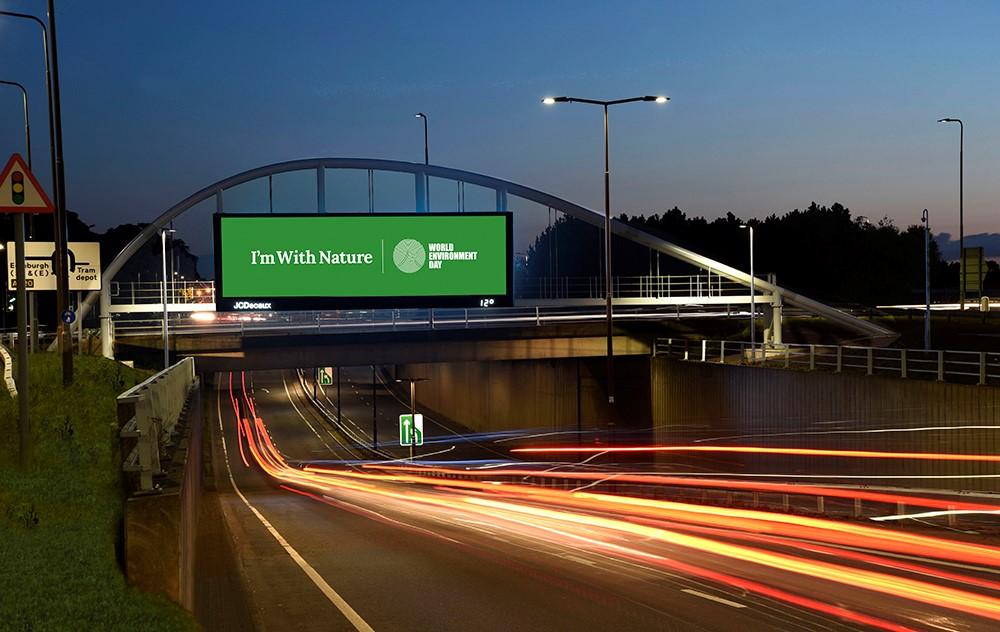New Technologies
Disruptive Tech in Auto: A Competitive Data-Fuelled Future
Sustainability is top of the agenda
Sustainability is at the top of the agenda for many industries due to increased regulation, a need for brands to demonstrate a ‘purpose beyond profit’, and to build a sustainable business to ensure its survival. As automotive brands move towards electric innovation, their marketing strategies evolve to reflect this sustainable outlook. Advertisers regularly use Out-of-Home to demonstrate their sustainability credentials, from eco-billboards, to sustainable bus shelters to re-developed green spaces.

Electric acceleration
Prevailing opinion is that the decline of the internal combustion engine and the proliferation of electric cars will continue. More stringent emissions regulations, falling battery costs, rising numbers of charging points and a general growing consumer acceptance all indicate an electric-powered future. Even luxury car brands are embracing this future with Porsche stating that in five years, half of its sales will be electric, and Tesla beginning to target the mass market with its new Model 3.
The path to autonomy
A key trend in the automotive industry in 2017 is the evolution of semi-autonomous vehicles. Many cars already come with collision avoidance and driver assistance, but advancements are expected in the areas of connected cars that will ultimately lead to fully-autonomous vehicles. While it is widely accepted that realisation of this concept is over a decade away, the fundamental building blocks are in place.A data-fuelled future
Connected cars will use real-time data, as demonstrated by Toyota’s vehicle-to-infrastructure system where cars can communicate with traffic lights and junctions. 84% of automotive executives already agree that data will be the ‘fuel’ for the future automotive business model, and this includes their marketing strategies.Many automotive brands seek to offer more relevant content for their audience and take advantage of targeted advertising through data-driven platforms in OOH, digital and TV. OOH’s roadside environment is perfectly situated to target a relevant, captive and engaged audience. Developments in real-time data integration and image recognition mean that brands can take advantage of contextual and personalised advertising, which speaks directly to their target consumer.
Tech giants taking over automotive
Relationships between motorists and vehicles are undoubtedly set to change beyond recognition as we move towards the autonomous era. OEMs will need to adapt to the evolving needs of consumers and revenue streams may be predominantly generated outside of vehicle production.57% of consumers would consider switching from their current brand if technology companies like Apple or Google produced cars.Capgemini Cars Online 2017 Beyond the Car
The automotive ad market mirrors trends in the wider industry with digital driving the ad spend growth and influencing the path-to-purchase. OOH however, remains the key medium for driving awareness and offering real-life experience – something that is innate to the automotive consumer journey.
The automotive industry is approaching a tipping point. Vehicle technology is evolving at a rapid rate and consumers’ needs are set to develop concurrently. Likewise, the automotive advertising market is seeing huge change in areas of data intelligence, disruptive entrants and sustainability. Companies that can most successfully integrate these trends in 'autotech' will dictate the future world of mobility.



